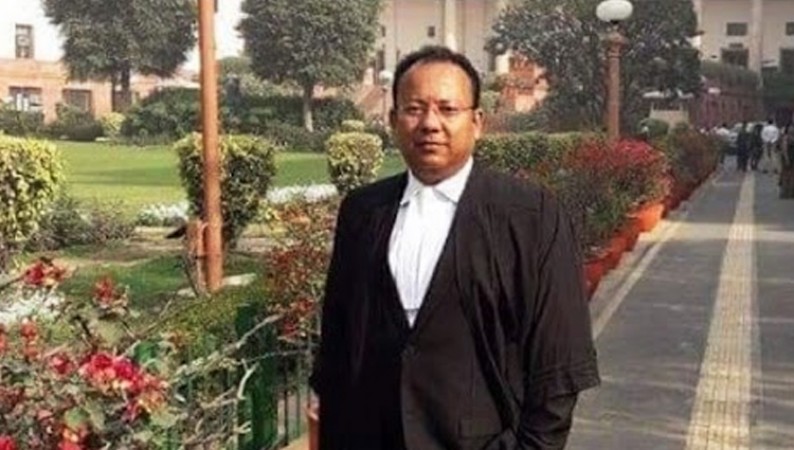
GANGTOK: Sikkim's Additional Advocate General Sudesh Joshi resigned today, February 1. The resignation comes amid public criticism after the Supreme Court said the Sikkimese Nepali community as immigrants while extending income tax exemption to all old settlers of the State.
Sudesh Joshi said in a letter to Chief Secretary V. B. Pathak which reads: "I am writing to inform you of my resignation from the post of Additional Advocate General with immediate effect. I have always been sincere towards my dearest State of Sikkim and its citizen. There has never been any professional dereliction of duty from my part," he said.
"Some false, unjustified, and baseless allegations against me are making the rounds in social and electronic media, which are entirely devoid of basis and are labelled to cast me in a poor light and to criticise the Administration," he said in a thank-you statement to the State government. Mr. Joshi claimed that under the current circumstances, his conscience forbade him from holding onto his position.
The political parties of the State assailed the AAG, alleging that he did not brief the court sufficiently about the distinction between the Sikkimese Nepali population and the other old settlers, leading to the observation.
The State government has already initiated steps for filing the review petition for addressing the concerns of the Sikkimese Nepali community.
The Supreme Court ordered the government to change the definition of "Sikkimese" in Section 10 (26AAA) of the Income Tax Act of 1961 to include income tax exemption for all Indian citizens residing in Sikkim as of or before the merger date of April 26, 1975. This order was issued on January 13, 2023.
The Union of India shall amend Explanation to Section 10(26AAA) of the Income Tax Act of 1961 to adequately include a provision extending the exemption from payment of income tax to all Indian residents residing in Sikkim on or before April 26, 1975.
When deciding on two writ petitions, the supreme court stated: "The reason for such a direction is to prevent explanation from unconstitutionality and to guarantee parity in the facts and circumstances of the case."
'Encroachment on govt land will be removed', SC refuses to hear against the order
'Govt is bound to accept constitution bench's decision', says former SC judge